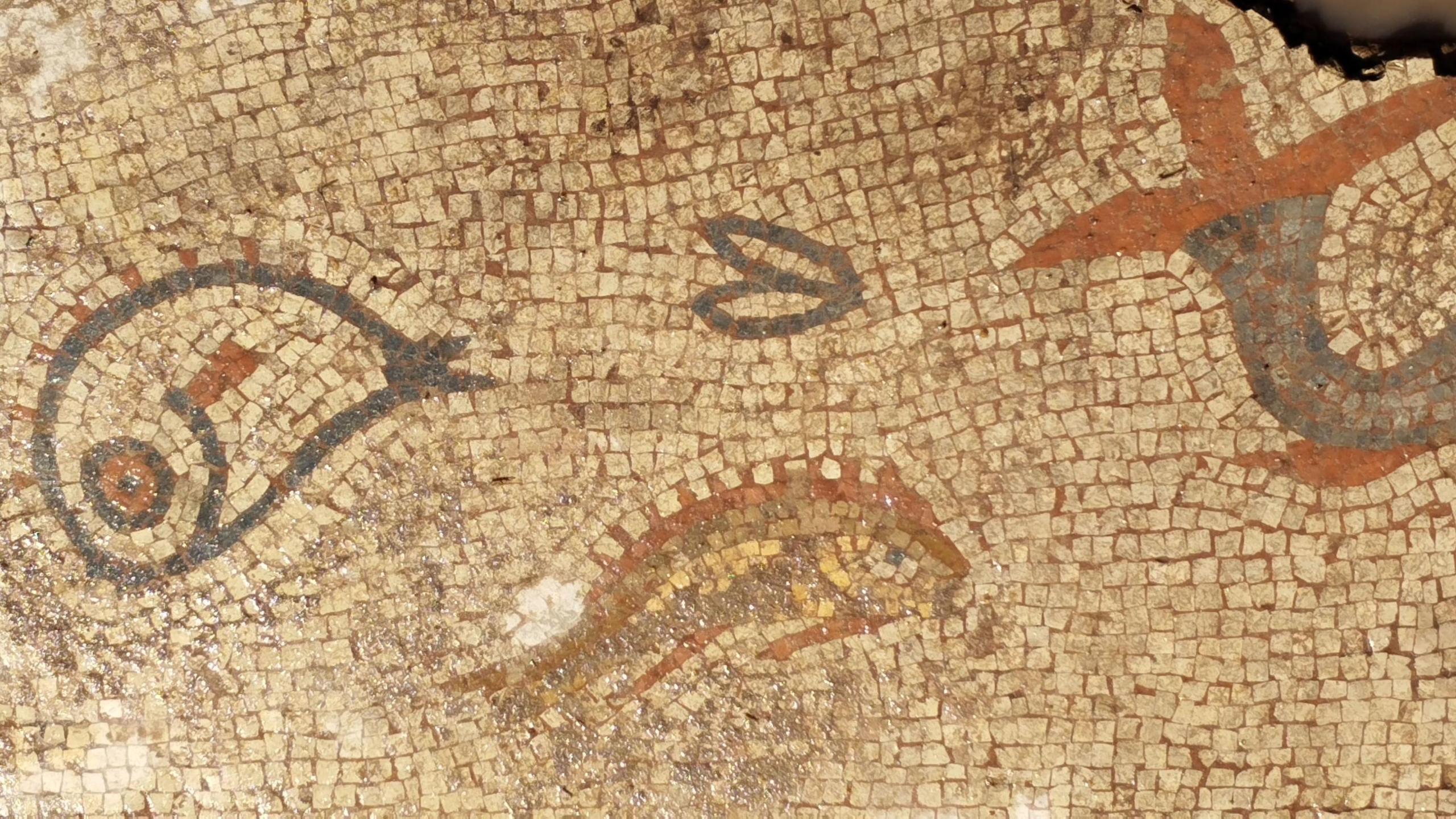Rare 2,000-year-old mosaic found in western England

- Published
A rare 2,000-year-old mosaic of dolphins and fish in bright colours has been uncovered in the west of England.
The artwork was found in Shropshire by experts who were carrying out work in the village of Wroxeter.
Wroxeter is one of Britain's best preserved examples of a Roman city.
Archaeologists say that a rich and important person would have ordered the mosaic to have been made.
More like this
- Published11 January 2023
- Published22 December 2023
- Published30 May 2023
What did experts find?
A mosaic is a decorative wall or floor that is made up of lots and lots of small tiles. Sometimes these tiles have been cut into shapes, sometimes the tiles are broken fragments.
They can be made up of lots of different materials such as clay tile, stone and glass.
Mosaics were a popular decorative feature in Roman times for wealthy home owners.
This mosaic dates from the early 2nd century and was discovered by an international team of experts which included English Heritage and the University of Birmingham.
As well as the mosaic, many smaller finds were also discovered during the excavation, including coins and pottery.
Wroxeter, or Viriconium as it was known, was founded around 90AD and was once as large as the famous city of Pompeii.
It had a market place, a county hall and more than 200 houses at one time.
A small number of buildings of the lost city remain above ground, which are cared for by English Heritage.
